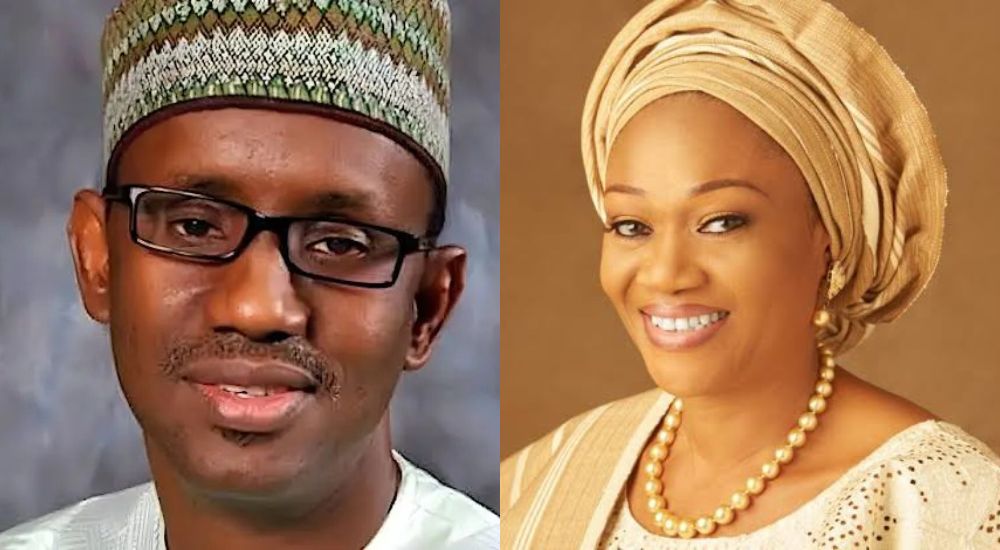In a country reeling from a series of pressing challenges, from economic instability to rising insecurity, the recent announcement that First Lady Oluremi Tinubu and National Security Adviser Nuhu Ribadu will lead national prayers is both a powerful and poignant gesture.
Organised in collaboration with leaders from both the Christian and Muslim communities, this week-long prayer event seeks to invoke divine intervention for Nigeria’s ongoing crises, marking a rare moment of interfaith solidarity.
The initiative, spearheaded by Segun Afolorunikan, Director-General of the National Prayer Forum, represents more than just an appeal for divine help. It is a reminder that in moments of profound national distress, citizens often turn to their faith as a source of strength and hope.
Whether it is economic turmoil, widespread insecurity, or the pervasive sense of national disillusionment, the message is clear: prayer offers a way to channel collective concerns into a source of healing and restoration.
The proposed activities are both ambitious and symbolic. For seven days, Muslim faithful will gather at the National Mosque in Abuja to recite Quranic verses, with 313 individuals committed to taking part in this religious devotion.
While the intention behind this interfaith initiative may be to seek divine intervention for the country’s numerous crises, it risks reducing governance to a symbolic act, undermining the democratic process. Even in theocracies, practical solutions and empirical evidence are prioritised over religious rituals — a principle that should hold true for Nigeria as well.
The decision to invoke religious faith as a central response to Nigeria’s pressing challenges — from soaring energy costs and runaway inflation to widespread insecurity and a crumbling healthcare system — is, at best, misguided.
A week after the announcement, First Lady Oluremi Tinubu distanced herself from the summit, which further raises questions about the commitment to this initiative and whether it was ever more than a political stunt.
Religion, while an important personal and communal aspect of life, should remain private, especially for those in public office. When government leaders publicly align themselves with religious causes, it risks politicising faith and blurring the lines between state and religion — a dangerous precedent in a country as diverse as Nigeria.
While faith provides comfort and hope to millions, it is not a strategy for economic development or social progress.
Christianity and Islam both emphasise the importance of work alongside prayer, yet if prayer alone were enough, Nigeria would surely be a paradise, given the vast number of religious citizens and the countless mosques and churches scattered across the country.
Nigerians are well aware that prayer alone won’t solve issues like hunger, power shortages, poor infrastructure, or the lack of effective governance.
Prayers cannot build a competent public service, police force, or other essential services. A prosperous society comes from applying sound scientific principles and holding people accountable for their actions.
Meanwhile, Nigerians spend vast sums of money annually on pilgrimages to Israel and Saudi Arabia. But in contrast, Israel’s thriving technology, agriculture, health, and defence industries are the result of investments in education and scientific research—not prayer.
Similarly, the Gulf states, including Saudi Arabia, have transformed their arid landscapes into modern metropolises through strategic policies and careful management of their oil wealth. Iran, despite being a strict Islamic state, has become a weapons supplier to Russia, thanks to its investment in education and scientific advancement.
For Nigeria to truly progress, both the government and its citizens must take responsibility for their actions and decisions. While prayer can support human efforts and provide spiritual and psychological solace, it should not be seen as a substitute for real, practical solutions to the country’s pressing challenges.
The onus is on Nigeria’s leaders to make the right choices and address the consequences of failed policies. The government’s neglect of the power grid has led to chronic blackouts, while its mismanagement of policies has caused petrol prices and electricity tariffs to soar.
Furthermore, the response to the country’s security crisis has been incoherent at best. Prayer alone cannot resolve these systemic issues; rather, this reliance on prayer feels like a diversion from the accountability that is desperately needed.
Religious leaders, too, have a critical role to play in helping guide the nation away from the moral decay that has gripped it. They must speak out and challenge the status quo, encouraging citizens to strive for a better, more just society.
Ultimately, Nigeria’s path to success lies in a clear separation between religion and the state. Only then can the country make the informed, rational decisions necessary to foster growth and stability.
In essence, while the prayer event is a welcome show of faith and solidarity, it is also a clarion call to all Nigerians — from the leaders at the top to the citizens at the grassroots — to remain engaged, active, and accountable. Let this week of interfaith prayer be not just an act of spiritual devotion, but also a moment of reflection on the role of governance, leadership, and personal responsibility in overcoming the national challenges that lie ahead.
May this unified call for divine intervention serve as both a catalyst for spiritual renewal and a call to action for practical, lasting solutions to Nigeria’s crises.
Good governance requires more than spiritual rhetoric. It demands concrete actions, well-crafted policies, and the political will to implement them. Prayer may provide solace, but it is not a replacement for the hard work of leadership. Nigeria needs solutions that are rooted in empirical evidence, not just appeals to the heavens.

